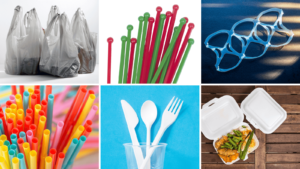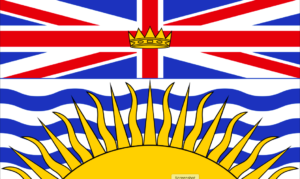- Plastic Bans
- Policy
- National
Tofino casts bylaw banning plastic bags and straws
Tofino, British Columbia town council drafts a bylaw that would prohibit all local businesses from selling or providing plastic bags or single-use straws.
Full Article
Author: Andrew Bailey, Tofino-Ucluelet Westerly News
The West Coast’s war on single-use plastics rages on.
Tofino has taken a significant step towards banning plastic bags and straws as the town’s council unanimously supported a draft bylaw that would prohibit all businesses from selling or providing plastic bags or single-use straws and set a minimum retail price of 25 cents for paper bags and $2 for reusable bags.
“We’re trying to avoid the rebound to excessive paper and reusable bags by adding a minimum price,” explained Tofino’s manager of corporate services Elyse Goatcher-Bergmann during a presentation to council on Feb. 26. “Fees are a disincentive. That is what we’re using them for in this case. We’re using them as a disincentive to over-consuming bags.”
District staff have been working on the draft bylaw since receiving direction from council to look into a single-use plastic ban last year.
Goatcher-Bergmann noted the City of Victoria moved ahead with plastic bag legislation last year, which initially withstood a court challenge but is now under appeal.
She said Qualicum Beach and Parksville have also looked into bag bans, but only Victoria has one in place so far on Vancouver Island. She added that no communities currently have a plastic straw ban in place.
“The issue that we’ve defined for us is the accumulation of plastic, especially single use plastic, products entering municipal waste streams, or escaping that waste stream and then entering the environment where they break down into small, unrecoverable pieces,” she said.
“Both of these impacts have a risk to the municipality in that they are accumulating in our solid waste systems as well as on our beaches, rivers and streets so there’s an impact either way.”
She said the West Coast landfill is currently estimated to reach its capacity in 2068.
“Plastics are the third largest component of our residential waste on the coast,” she said adding organics and paper are the top two,” she said. “The regulatory approach that we’re taking is not just a ban, but also a minimum price on paper and reusable bags…They’re obviously not very recyclable at the end of life so they just end up in our waste streams as well.”
She said Tofino has been in contact with Ucluelet to take a regional approach on plastics and ensure consistent laws across the peninsula and added that the district has received resounding support from the community on the proposed ban.
“For many people, a ban on these certain items represents a change that they’re willing and waiting for,” she said.
She said biodegradable and compostable plastic bags would be included in the ban because, “These materials contaminate existing recycling streams and do not adequately decompose in a landfill or the environment.”
There would be exceptions under the proposed bylaw, however, as it stipulates paper or plastic may be used: “to package loose bulk items; contain or wrap fresh or frozen meat, poultry or fish; wrap flowers; protect baked goods and non-packaged foods; contain prescription drugs; or contain large items that cannot easily fit into a reusable bag.”
With council’s unanimous support in hand, district staff will now further consult with businesses around other potential exceptions from the ban and hear feedback on the suggested retail price for both paper and reusable bags.
Goatcher-Bergmann suggested the ban would be preceded by a roughly six-month educational campaign and implementation period with enforcement beginning in 2020.
“This is a big shift. I know that a lot of people are doing this already, but we do have quite a lot of work to do to make sure this is implemented well,” she said.



